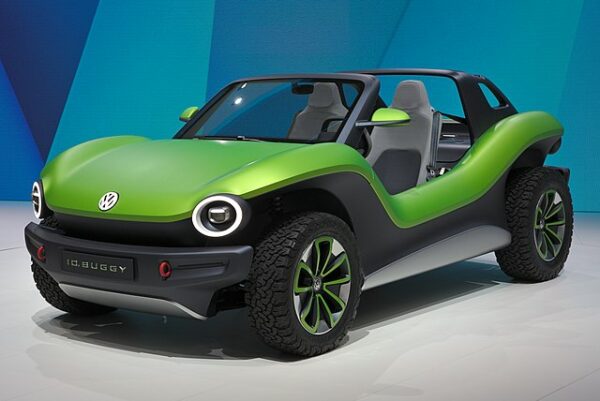The Biden administration has plans to drastically increase auto pollution restrictions, making the United States one of the strictest in the world in hopes that it will push the market towards electric vehicles.
The move comes with the hope that two-thirds of cars sold in the country by the next decade are electric.
The New York Times writes, “It would be the federal government’s most aggressive climate regulation and would propel the United States to the front of the global effort to slash the greenhouse gases generated by cars, a major driver of climate change. The European Union has already enacted vehicle emissions standards that are expected to phase out the sale of new gasoline-powered vehicles by 2035. Canada and Britain have proposed standards similar to the European model.
At the same time, the proposed regulation would pose a significant challenge for automakers. Nearly every major car company has already invested heavily in electric vehicles, but few have committed to the levels envisioned by the Biden administration. And many have faced supply chain problems that have held up production. Even manufacturers who are enthusiastic about electric models are unsure whether consumers will buy enough of them to make up the majority of new car sales within a decade.
The action from the E.P.A. is likely to hearten climate activists, who are angry over the Biden administration’s recent decision to approve an enormous oil drilling project on federal land in Alaska. Some inside the administration argue that speeding up a transition to renewable energy, with most Americans driving electric vehicles, would lessen demand for oil drilled in Alaska or elsewhere.
Michael S. Regan, the administrator of the Environmental Protection Agency, is expected to announce the proposed limits on tailpipe emissions on Wednesday in Washington. It was originally set for Detroit, but the agency cited scheduling conflicts in moving the location. The requirements would be intended to ensure that electric cars represent between 54 and 60 percent of all new cars sold in the United States by 2030, with that figure rising to 64 to 67 percent of new car sales by 2032, according to the people familiar with the details, who spoke on condition of anonymity because the information had not been made public.
“As directed by the President in an executive order, the EPA is developing new standards that will seize on this historic progress to accelerate the transition to a zero-emissions transportation future, protecting people and the planet,” an EPA spokesperson told CNBC in a statement. “Once the interagency review process is completed, the proposals will be signed, published in the Federal Register, and made available for public review and comment.”
CNBC noted that “the spokesperson declined to provide specific details about the regulations.
Many automakers have already begun to make significant investments in electric vehicles, but forcing such rapid adoption of the technology will present challenges. Large numbers of all-electric cars will require expansive charging infrastructure, for instance.
In February, the Biden administration said it wants to see at least 500,000 electric vehicle chargers on U.S. roads by 2030, and announced a slate of initiatives to help make that a reality, including commitments from companies that build and operate charging networks like Tesla, General Motors, Ford, ChargePoint and others.”
The move toward EVs is not without its critics. The Daily Mail explained that one obstacle in achieving an all electric auto market comes from the amount of lithium needed to produce the batteries for the vehicles.
“Electric vehicles are already the largest source of demand for lithium – the soft, white metal common to all current rechargeable batteries.
Mining lithium is a fraught business, and the rise in demand for EVs is contributing to a rise in social and environmental harms – and global supply chain bottlenecks.
If Americans continue to depend on cars at the current rate, by 2050 the US alone would need triple the amount of lithium currently produced for the entire global market, which would have dire consequences for water and food supplies, biodiversity, and Indigenous rights.”
“The rules will undergo extensive public comment and analysis before the EPA decides,” according to The Washington Post. “Rules like this typically take months to complete after engagement from a range of stakeholders, including the auto industry, environmental groups, consumer advocates and energy companies. And environmentalists have urged the administration for months to go faster, to ensure that they are complete and legally sound before Biden faces reelection next year.”
Electric vehicles currently make up less than six percent of the American automobile market. It’s another example of how Joe Biden portrays himself as a moderate, but his administration acts like Elizabeth Warren is in charge.
[Read More: Small Business Closures Hit All Time High]



